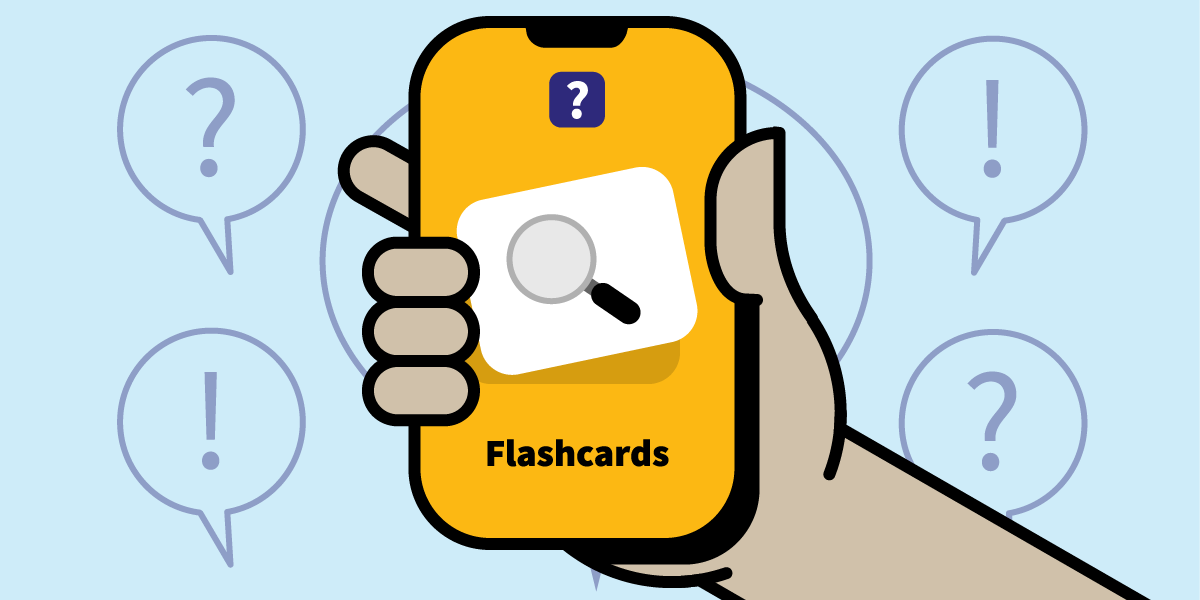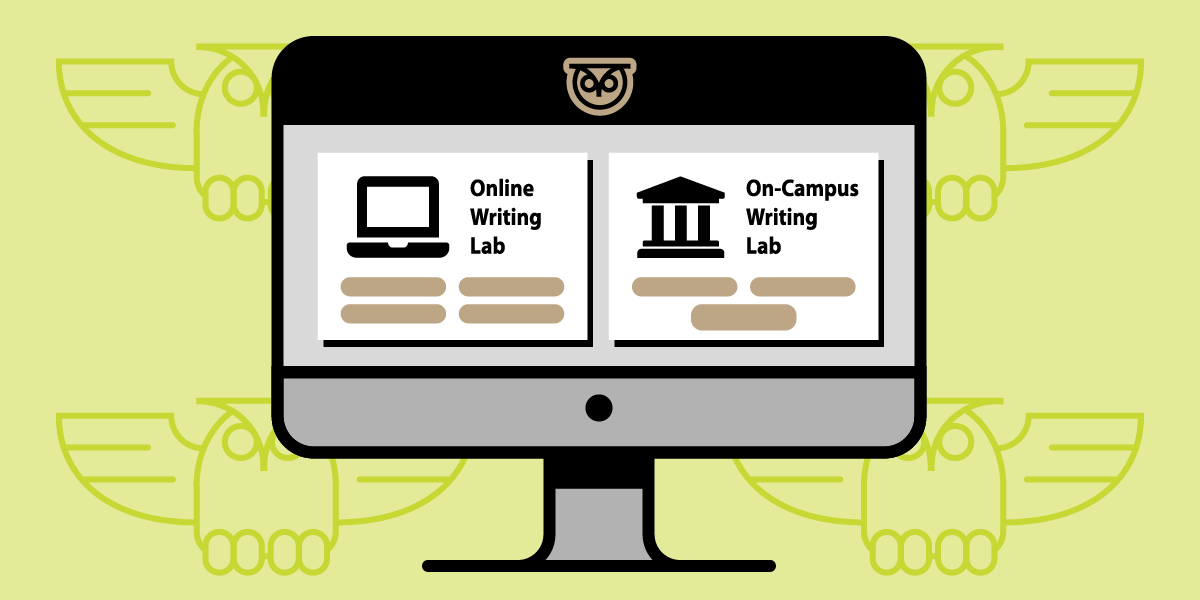How to crush college
These are the best ways to get ahead and stay ahead of your academic workload in college.

While everyone’s study style is different, it’s very common for new students and upperclassmen alike to need a little assistance along the way. Here, we offer guidance on everything from how to ask for help in college, when to go to office hours, ways to develop good study habits and even ideas for setting up a study schedule. Whatever it is you need, your school has a wealth of resources to help you get and stay on track for stellar grades, right through graduation.
How to take advantage of tutoring resources
According to Colleen Williams, a program coordinator at the Temple University Student Success Center and Temple alum, one of the best things you can do is take advantage of what your school is already offering. “Most colleges and universities, Temple included, have a variety of resources available to help students,” they said.
Often, it’s easier to hear the material from another student who gets what it’s like to juggle classes, extracurriculars and friends than it is to hear it from a professor. That’s why most schools offer free peer tutoring for all students, and Temple is no exception. Plus, you can seek it out for a variety of reasons: Whether you need help editing a draft, brainstorming or even just understanding what the instructions of an assignment are asking, a tutor can help you at least get started.
“Sometimes just meeting with a writing tutor who is a fellow student, who maybe has had that professor before, maybe taken a class like that before, can help to reassure you that no, you're not stupid, this is just confusing material,” said Stephen Kelly, assistant director of writing services at Temple’s Student Success Center. “Perhaps then the next step is reaching out to the professor, going to the office hours and confirming that you understand the assignment correctly.”
Williams emphasized that both professors and tutors are there for the benefit of the students—and so you should never hesitate to use them! “Just learning to use the resources that are around you can help you,” they said. “There's no shame in getting help for anything in life.”
They emphasized the latter point, as many students often feel that seeking out resources like tutoring is beneath them, or even like it’s cheating. “A lot of times, students are almost afraid to use the resources that are around them,” they said. “They sometimes feel a bit of shame, like, ‘Hey, I should be able to do this on my own because everyone else is doing it, so I should be able to, too.’ One thing that I always say to students is don’t be afraid to use the resources that are available from your college, because most of the time, they’re free.”
Why you should calculate and monitor your college GPA

Keeping an eye on your GPA is one way to help you to know when to seek additional academic help. You can check your GPA at any time through your school’s portal. In Temple’s case, this would be in TUportal. For grades, Temple utilizes Canvas, where students can check their current grades and even test potential future assignment scores to calculate their final grades. Many other universities use Canvas as well, and others use software like Blackboard.
If you have more in-depth questions about your grades, talk to your professor or TA. They’ll have the most accurate information about how you’re doing, what’s coming next and how to achieve the grade you’re looking for. They’ll also be able to answer any questions about the course material itself.
Additionally, to boost your grade, the rare-but-valuable extra credit assignment can come in handy. “It really is going to vary per department or professor. But generally speaking, professors do offer extra credit, and it’s usually optional,” Williams said. “There’s never going to be a situation where you have too many points or you don’t need it; it literally cannot hurt you to do extra credit. So if it’s available, do it.”
How to ask for help when you need it
Of course, there are a million reasons you could need help or some extra time on an assignment. Most of the time, professors are understanding and accommodating when the unexpected happens, and they will help you come up with a new deadline. “I recommend communicating directly with professors if you do need some extra support or time, and then honoring that if they grant it,” said Gabby Comp, a graduate student and an office assistant and ambassador to Temple’s Student Success Center.
According to Kelly, professors are usually also accommodating when students need these sorts of accommodations. “Probably 95 times out of a hundred, you’re going to be met with empathy and compassion and understanding,” he said.
Both he and Comp recommend meeting with professors when you have questions about the material—that’s what they have office hours for! After all, they are the experts in the material AND the ones giving you the assignments that will determine your grade. “Meeting with a professor during their office hours is always really recommended, as they’re the ones who have the most knowledge of the course content,” Comp said.
How to start studying for college midterms and finals
Exam time presents a whole new wave of deadlines and commitments, and keeping track of it all can be rather daunting. Of course, everyone has different study methods, and not every method works for every student. However, there are some methods that seem to work for a lot of people, and they could work for you, too.
“It’s important to understand that there are a variety of studying methods,” Williams said. “Try to explore a variety of different studying styles to see which one helps the information stick in your brain.”
First, turn to the notes you took in class. Don’t just read them, though—try rewriting them. “I would say rewriting notes is really a good strategy,” Comp said. “I would maybe take a concept and write as much as I could remember about it, on a sheet of paper or a whiteboard, as if I was trying to teach someone else what the content was.”
She also recommends an on-and-off study schedule. "The hardest thing is just starting sometimes,” she said, and added that it’s much easier to do so if you know you’ll only be studying for 30 minutes at a time with five-minute breaks in between. Rinse and repeat.
You can also pair this with another method, where you start with small tasks and build up to the larger ones. This way, you’ll have a feeling of accomplishment when you start completing tasks, which will motivate you to complete the more difficult or time-consuming assignments. 
She also said that one of the most valuable digital tools for studying is Quizlet, an online flashcard software that is free to use. She explained that it can be a valuable tool both at exam time and when incorporated regularly into your study routine. “You can have Quizlet on your phone, you can review it when walking between classes, but you can also do it in a more structured setting if you carve out the time,” she said.
One of the more fun strategies, according to Comp, will even leave you with content for your social media. “I will sometimes take time lapse videos of me studying because it keeps me off my phone,” she said. “It’s like a reminder that I’m doing work. And then it’s a little reward afterward, and you can see all the work you did in a 20 second video.”
If your midterms are mostly papers and writing assignments, you can save yourself a lot of time by using online resources to check your citations. Kelly recommends Purdue OWL, a well-known website explaining various citation styles.
Of course, there are also certain things you shouldn’t do—and the main one is getting distracted by your phone. “I would say, while you’re studying, try to put your phone down,” Comp said. “Honestly, I think that it can be a huge distraction sometimes, and so putting it on ‘do not disturb’ can help.”
As you would probably expect, the more time you dedicate to a project, the more prepared you will likely be to succeed. The same goes for preparing in advance. If you’re looking for a tutor to help you study, Kelly recommends booking one as early as possible, as options for last-minute appointments are often scarcer than those booked a week in advance.
In general, it helps a lot to start studying earlier than you think you need to—one, even two weeks in advance is a good rule of thumb. When you start studying, it’s important to make sure you’re able to focus. One way to do that is to find a good study spot where you can focus without feeling too isolated.

How to deal with school-related stress and anxiety
Exam season also comes with its fair share of stress. While this is completely normal and even expected, it doesn’t mean you just have to live with the stress. Many schools, Temple included, host events and workshops surrounding exam weeks in order to help students de-stress and stay on track.
If you’re experiencing stress that is regularly leaving a negative impact on your life, there are services available to help you. At Temple, Tuttleman Counseling Services provides a wide variety of options such as individual and group therapy, professional referrals, and even therapeutic yoga. Temple’s Wellness Resource Center is also a great place to find resources for managing stress. They provide workshops, training and events that support a healthy campus community (think stigma reduction workshops, safer sex supplies and peer support).
Taking care of your physical health can also help to regulate stress during these busy seasons. Getting enough sleep and eating nutritious meals (NOT just snacks and energy drinks!) will help immensely with stress and anxiety, because your body and brain will be properly fueled to take on the challenges ahead.
However, it’s also important to get some variation into your day. Scheduling some fun activities to get your mind off academics can actually help you focus in the long run—and it’ll help you stay sane. “Find something you enjoy, whether it’s going on a walk, talking with a friend, doing a hobby or just finding some way to disrupt that time,” Comp said. “But also keep it structured, making sure you still have time for other things.”
Another important thing to remember, according to Williams, is that you are not alone. It’s exam season for everyone else, too, and you’re all more or less in the same boat. “It’s kind of important to understand that everyone around you is stressed,” they said. “It is okay to be stressed. Your emotions are valid, and there’s ways that you can support yourself. So don’t be afraid to reach out to your support system, be it friends, family or built-in centers like the Temple Wellness Resource Center.”
They also recommend networking with your peers when you’re struggling. Instead of networking with the goal of professional development, try it with the intention of finding commonality. “Talking with your peers and your classmates and understanding how they are tackling their college experience can put things into perspective,” they said. “How are they handling the college experience?”
In doing this, you may find that using your school’s resources isn’t as uncommon as you thought. You’ll find that everyone needs support sometimes—and that there are plenty of places to find it.
Become an Owl: Learn more about applying for one of our undergraduate, graduate or professional programs.
Student Success at Temple: Temple University is dedicated to its students’ success. Whether it’s academic coaching, writing or learning new languages, our Student Success Center is prepared to help you put your best foot forward.
Academic resources at Temple: Our Student Success Center is equipped not only to help students face-to-face, but also through the sharing of academic resources. They’re free for anyone to use!

